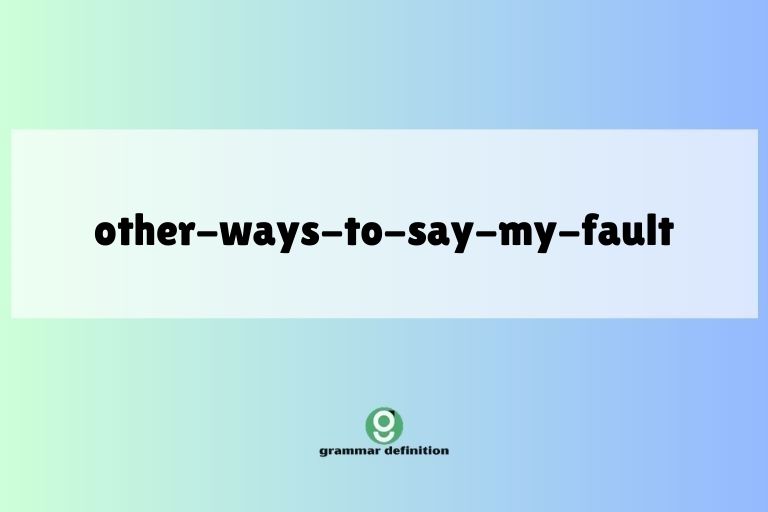Beyond “Hanging In There”: Diverse Ways to Express Resilience

Expressing resilience and perseverance is a crucial aspect of communication. While “hanging in there” is a common phrase, it’s essential to have a variety of alternatives to convey your feelings and situation more precisely.
This article explores numerous ways to express that you are coping with difficulties, providing you with the vocabulary and understanding to communicate your resilience effectively. Whether you’re a student, professional, or language enthusiast, mastering these expressions will enhance your communication skills and allow you to connect with others on a deeper level.
This guide is designed to help you understand the nuances of each phrase, ensuring you can choose the most appropriate expression for any situation. We will delve into definitions, structural breakdowns, usage rules, and common mistakes, providing you with a comprehensive understanding of how to use these phrases correctly and confidently.
Furthermore, we’ll include practice exercises and an FAQ section to solidify your learning.
Table of Contents
- Definition of “Hanging In There”
- Structural Breakdown of “Hanging In There”
- Synonyms and Categories of Expressions
- Examples of Alternative Expressions
- Usage Rules
- Common Mistakes
- Practice Exercises
- Advanced Topics
- FAQ
- Conclusion
Definition of “Hanging In There”
“Hanging in there” is an idiomatic expression that means to persevere or continue to cope with a difficult situation. It implies that one is experiencing hardship but is managing to survive or endure it.
The phrase suggests a sense of resilience and determination in the face of adversity. It’s often used to express empathy or support to someone going through a tough time.
The phrase captures the idea of holding on despite challenges, refusing to give up, and maintaining hope for a better outcome.
In essence, “hanging in there” conveys a message of strength and endurance. It’s a common phrase used in everyday conversation to acknowledge difficulties while simultaneously expressing a positive outlook.
The idiom is widely understood and accepted in most English-speaking contexts, making it a versatile expression for various situations.
Structural Breakdown of “Hanging In There”
The phrase “hanging in there” is composed of three key elements:
- Hanging: This is the present participle of the verb “hang,” suggesting an action that is ongoing. In this context, it doesn’t refer to literal suspension but rather to holding on or clinging.
- In: This preposition indicates direction or containment. Here, it implies being involved or immersed in a situation.
- There: This adverb refers to a specific place or situation. In this context, it represents the difficult circumstances one is facing.
The combination of these elements creates a vivid image of someone holding on tightly within a challenging environment. The structure is relatively simple, which contributes to its widespread use and easy understanding.
The phrase is typically used as a complete sentence or as part of a longer statement, providing context and further explanation. Grammatically, “hanging” functions as a gerund acting as the main verb, while the rest of the phrase provides additional context.
Synonyms and Categories of Expressions
There are many alternative ways to express the sentiment of “hanging in there,” each with its own nuances and connotations. These expressions can be categorized into several groups based on the specific aspect of resilience they emphasize.
Enduring Phrases
These phrases emphasize the act of withstanding hardship over a period of time. They highlight the ability to last through difficult circumstances.
They suggest a long-term struggle and the effort to remain strong.
Coping Phrases
These expressions focus on the strategies and methods used to manage difficult situations. They highlight the active effort involved in dealing with adversity.
They often imply a sense of resourcefulness and adaptability.
Persevering Phrases
These phrases stress the determination and persistence required to overcome challenges. They highlight the refusal to give up despite obstacles.
They often convey a sense of optimism and hope for the future.
Managing Phrases
These expressions emphasize the ability to handle and control difficult situations. They highlight the organizational and problem-solving skills involved in dealing with adversity.
They often imply a sense of competence and efficiency.
Withstanding Phrases
These phrases focus on the ability to resist the negative effects of hardship. They highlight the strength and resilience required to remain intact despite challenges.
They often convey a sense of fortitude and unwavering resolve.
Examples of Alternative Expressions
Below are examples of alternative expressions, categorized based on the above-mentioned groups. Each category includes a table with numerous examples to illustrate the usage and context of each phrase.
Enduring Phrases Examples
The following table provides examples of phrases that emphasize enduring hardship. These phrases often imply a sense of long-term struggle and the effort to remain strong despite ongoing challenges.
| Phrase | Example Sentence | Nuance |
|---|---|---|
| Bearing up | Despite the setbacks, I’m bearing up quite well. | Implies coping with emotional or mental stress. |
| Holding on | We’re holding on until things get better. | Suggests a temporary struggle with hope for improvement. |
| Sticking it out | I’m sticking it out until the end of the project. | Indicates a commitment to complete something despite difficulties. |
| Weathering the storm | The company is weathering the storm of the economic crisis. | Suggests enduring a period of intense difficulty. |
| Getting through it | We are getting through it day by day. | Implies a gradual process of overcoming challenges. |
| Lasting through | She’s lasting through the difficult training program. | Highlights the ability to endure a prolonged challenge. |
| Remaining strong | They are remaining strong despite their losses. | Emphasizes maintaining emotional or mental fortitude. |
| Staying afloat | The small business is staying afloat during the pandemic. | Suggests just managing to survive financially. |
| Gritting my teeth | I’m gritting my teeth and getting on with it. | Implies forcing oneself to endure something unpleasant. |
| Taking it day by day | I’m taking it day by day to manage the stress. | Highlights a focus on short-term goals for managing a long-term problem. |
| Soldiering on | Despite the pain, he’s soldiering on with his work. | Implies continuing with determination, often in the face of adversity. |
| Keeping my head above water | With all these bills, I’m just keeping my head above water. | Suggests barely managing to stay out of trouble or debt. |
| Plodding along | We’re plodding along, slowly but surely making progress. | Indicates steady but slow progress despite difficulties. |
| Pushing through | We’re pushing through the final stages of the project. | Emphasizes the effort to overcome obstacles and complete a task. |
| Riding it out | We just need to ride it out until the economy improves. | Suggests waiting patiently for a difficult situation to pass. |
| Seeing it through | I’m determined to see it through to the end. | Highlights a commitment to complete a task despite challenges. |
| Sticking with it | She’s sticking with it, even though it’s tough. | Implies staying committed to a task or goal. |
| Toughing it out | We’re toughing it out until we find a better solution. | Suggests enduring a difficult situation with resilience. |
| Going the distance | He’s going the distance to achieve his dreams. | Emphasizes the effort to persevere and reach a long-term goal. |
| Holding fast | We’re holding fast to our principles during this crisis. | Implies maintaining strong beliefs or values despite challenges. |
| Keeping on keeping on | Life is hard, but we’re keeping on keeping on. | A folksy way of saying continuing despite difficulties. |
| Beating the odds | Against all expectations, they are beating the odds. | Implies succeeding despite seemingly insurmountable challenges. |
| Standing firm | We are standing firm in our commitment to quality. | Emphasizes maintaining a strong position or stance. |
Coping Phrases Examples
The following table provides examples of phrases that emphasize the act of coping with difficult situations. These phrases often highlight the strategies and methods used to manage adversity.
| Phrase | Example Sentence | Nuance |
|---|---|---|
| Dealing with it | I’m dealing with it as best as I can. | Implies actively managing a problem or situation. |
| Managing | We’re managing to stay on schedule despite the setbacks. | Suggests handling a situation effectively. |
| Getting by | We’re getting by with what we have. | Indicates surviving with limited resources. |
| Making do | We’re making do with the available equipment. | Suggests using what is available, even if it’s not ideal. |
| Coping | She’s coping well under the circumstances. | Implies handling stress or difficulties effectively. |
| Navigating | We’re navigating the challenges of the new market. | Suggests finding a way through a complex situation. |
| Handling it | He’s handling the pressure very well. | Implies managing a difficult task or situation effectively. |
| Taking care of it | I’m taking care of it, don’t worry. | Suggests actively managing a problem or responsibility. |
| Working through it | We’re working through the issues one by one. | Implies addressing problems systematically. |
| Addressing the issues | We are addressing the issues as they arise. | Highlights a proactive approach to problem-solving. |
| Tackling the problem | I’m tackling the problem head-on. | Suggests confronting a challenge directly. |
| Figuring it out | We’re figuring it out as we go along. | Implies finding solutions through trial and error. |
| Sorting things out | I’m sorting things out one step at a time. | Suggests organizing and resolving issues. |
| Juggling everything | She’s juggling everything at work and home. | Implies managing multiple responsibilities simultaneously. |
| Balancing it all | He’s balancing it all, despite the challenges. | Suggests maintaining equilibrium in a complex situation. |
| Making it work | We’re making it work with what we have. | Implies finding a way to succeed despite limitations. |
| Making the best of it | We’re making the best of a bad situation. | Suggests finding positive aspects in a negative situation. |
| Adapting | We’re adapting to the new circumstances. | Implies adjusting to changing conditions. |
| Adjusting | I’m adjusting to the new workload. | Suggests adapting to a new or modified situation. |
| Rolling with the punches | You have to roll with the punches in this industry. | Implies adapting to unexpected setbacks. |
| Taking it in stride | She’s taking it all in stride. | Suggests handling difficulties calmly and effectively. |
| Staying on top of things | I’m staying on top of things, even with the extra workload. | Implies managing responsibilities efficiently. |
| Keeping things under control | I’m keeping things under control. | Suggests maintaining order and stability. |
Persevering Phrases Examples
The following table provides examples of phrases that emphasize perseverance and determination. These phrases often highlight the refusal to give up despite obstacles and convey a sense of optimism.
| Phrase | Example Sentence | Nuance |
|---|---|---|
| Pressing on | We’re pressing on despite the difficulties. | Implies continuing with determination. |
| Moving forward | We’re moving forward with our plans. | Suggests making progress despite setbacks. |
| Pushing forward | We’re pushing forward to meet the deadline. | Indicates effort to overcome obstacles and advance. |
| Striving | We’re striving to achieve our goals. | Suggests making a concerted effort to succeed. |
| Persisting | She’s persisting despite the challenges. | Implies continuing despite obstacles. |
| Enduring | We’re enduring the hardships to build a better future. | Suggests withstanding difficulties with strength. |
| Keeping at it | I’m keeping at it until I succeed. | Implies continuing to work towards a goal. |
| Not giving up | We’re not giving up on our dreams. | Suggests maintaining hope and determination. |
| Staying the course | We’re staying the course despite the temptations to quit. | Implies remaining committed to a plan or goal. |
| Keeping up the fight | We’re keeping up the fight for justice. | Highlights continuous effort to achieve a cause. |
| Digging deep | We’re digging deep to find the strength to continue. | Suggests finding inner resources to overcome challenges. |
| Fighting through it | We’re fighting through it, despite the pain. | Implies actively battling adversity. |
| Battling on | We’re battling on, determined to succeed. | Suggests persistent effort in the face of opposition. |
| Clawing our way through | We’re clawing our way through this mess. | Implies struggling intensely to overcome obstacles. |
| Never backing down | We’re never backing down from a challenge. | Suggests unwavering determination. |
| Plugging away | We’re plugging away at it, slowly but surely. | Implies steady effort despite slow progress. |
| Sticking to my guns | I’m sticking to my guns, no matter what. | Suggests maintaining one’s beliefs or principles. |
| Holding firm | We’re holding firm in our resolve. | Implies maintaining a strong position. |
| Staying strong | We’re staying strong for each other. | Suggests maintaining emotional fortitude. |
| Hanging tough | We’re hanging tough in the face of adversity. | Implies enduring difficult conditions with resolve. |
| Seeing light at the end of the tunnel | We’re seeing light at the end of the tunnel. | Suggests anticipating a positive outcome. |
| Keeping the faith | We’re keeping the faith that things will improve. | Implies maintaining hope and optimism. |
| Turning a corner | We’re turning a corner in our recovery. | Suggests a significant improvement is beginning. |
Managing Phrases Examples
The following table provides examples of phrases that emphasize the ability to manage and control difficult situations. These phrases often highlight organizational and problem-solving skills.
| Phrase | Example Sentence | Nuance |
|---|---|---|
| In control | I’m in control of the situation. | Implies managing a situation effectively. |
| On top of it | I’m on top of it, don’t worry. | Suggests managing responsibilities efficiently. |
| Keeping it together | She’s keeping it together despite the stress. | Indicates maintaining composure and control. |
| Getting a handle on it | I’m getting a handle on the project. | Suggests gaining control and understanding. |
| Taking charge | He’s taking charge of the situation. | Implies asserting control and leadership. |
| Organizing things | I’m organizing things to make it more manageable. | Suggests improving efficiency through organization. |
| Streamlining | We’re streamlining the process to make it easier. | Implies simplifying and improving efficiency. |
| Optimizing | We’re optimizing our resources to get the best results. | Suggests maximizing efficiency and effectiveness. |
| Coordinating | I’m coordinating the efforts to ensure success. | Implies managing and harmonizing different elements. |
| Orchestrating | We’re orchestrating the project to ensure smooth progress. | Highlights managing complex tasks with precision. |
| Calling the shots | I’m calling the shots to get things done. | Suggests making the key decisions and directing actions. |
| Running the show | She’s running the show efficiently. | Implies managing and directing operations effectively. |
| Calling the plays | I’m calling the plays to achieve our goals. | Suggests strategizing and directing actions. |
| Steering the ship | He’s steering the ship through rough waters. | Implies guiding and directing a project or organization. |
| Driving the project | I’m driving the project to completion. | Suggests leading and managing a project proactively. |
| Managing the workflow | We’re managing the workflow effectively. | Implies organizing and directing tasks efficiently. |
| Directing the operation | I’m directing the operation to achieve our objectives. | Suggests providing guidance and leadership. |
| Supervising the process | We’re supervising the process closely. | Implies monitoring and managing activities. |
| Overseeing the project | I’m overseeing the project to ensure success. | Suggests managing and supervising a project comprehensively. |
| Guiding the team | We’re guiding the team to achieve our goals. | Implies providing leadership and direction. |
| Leading the charge | He’s leading the charge to overcome the challenges. | Suggests taking a prominent and active role in managing difficulties. |
Withstanding Phrases Examples
The following table provides examples of phrases that emphasize the ability to resist the negative effects of hardship. These phrases often highlight the strength and resilience required to remain intact despite challenges.
| Phrase | Example Sentence | Nuance |
|---|---|---|
| Resisting the pressure | We’re resisting the pressure to compromise our values. | Implies maintaining integrity despite external forces. |
| Defying the odds | They’re defying the odds and achieving success. | Suggests succeeding despite unfavorable circumstances. |
| Overcoming obstacles | We’re overcoming obstacles to reach our goals. | Indicates successfully navigating challenges. |
| Rising above it | She’s rising above the negativity. | Suggests transcending difficult situations. |
| Standing up to it | We’re standing up to the injustice. | Implies confronting and resisting adversity. |
| Holding our ground | We’re holding our ground against the opposition. | Suggests maintaining a strong position. |
| Braving the storm | We’re braving the storm together. | Implies facing difficult circumstances with courage. |
| Weatherproof | We are weatherproof and ready for any challenge. | Suggests withstanding any kind of difficulty. |
| Fortifying ourselves | We’re fortifying ourselves against the challenges ahead. | Implies strengthening oneself for future difficulties. |
| Buffering against setbacks | We’re buffering against setbacks with contingency plans. | Highlights that measures are in place to withstand unexpected problems. |
| Protecting our interests | We’re protecting our interests during the negotiations. | Suggests safeguarding one’s assets or position. |
| Shielding from criticism | We’re shielding the team from unnecessary criticism. | Implies protecting from negative feedback. |
| Safeguarding our future | We’re safeguarding our future through careful planning. | Suggests protecting long-term prospects. |
| Preserving our values | We’re preserving our values in the face of adversity. | Implies maintaining one’s principles. |
| Defending our rights | We’re defending our rights against infringement. | Suggests protecting one’s entitlements. |
| Guarding against risks | We’re guarding against risks by implementing safety measures. | Implies protecting from potential dangers. |
| Insulating from damage | We’re insulating the company from economic downturns. | Suggests protecting from negative impacts. |
| Reinforcing our position | We’re reinforcing our position in the market. | Implies strengthening one’s competitive standing. |
| Bolstering our defenses | We’re bolstering our defenses against cyber threats. | Suggests strengthening security measures. |
| Bracing for impact | We’re bracing for impact from the upcoming changes. | Implies preparing for negative consequences. |
| Shielding from harm | We’re shielding the children from harm. | Suggests protecting from physical or emotional damage. |
| Mitigating the risk | We’re mitigating the risk of failure. | Implies reducing the potential for negative outcomes. |
| All hands on deck | We are all hands on deck, ready to face the situation. | Suggests everyone is needed to handle the situation. |
Usage Rules
When using these alternative expressions, it’s important to consider the context and the specific nuance you want to convey. Here are some general rules to follow:
- Consider the audience: Choose expressions that are appropriate for your audience. Formal settings may require more sophisticated language, while informal settings allow for more casual phrases.
- Match the tone: Ensure that the expression matches the overall tone of the conversation. Avoid using overly optimistic phrases in a somber situation, or vice versa.
- Be specific: Select an expression that accurately reflects the nature of the challenge you are facing. Some phrases emphasize endurance, while others highlight coping mechanisms or perseverance.
- Use correct grammar: Pay attention to verb tenses and subject-verb agreement to ensure that your sentences are grammatically correct.
- Avoid clichés: While some idioms are widely understood, overuse can make your language sound stale and unoriginal. Try to vary your expressions to keep your communication fresh and engaging.
Furthermore, be mindful of cultural differences. Some expressions may be more common or appropriate in certain regions or communities.
When in doubt, it’s always best to err on the side of caution and choose a more neutral and universally understood phrase.
Common Mistakes
Here are some common mistakes to avoid when using alternative expressions for “hanging in there”:
| Incorrect | Correct | Explanation |
|---|---|---|
| I’m bear up. | I’m bearing up. | “Bearing up” is the correct form of the phrasal verb. |
| We’re hold on through. | We’re holding on. | “Holding on” is the correct phrasal verb. |
| They are stick it outing. | They are sticking it out. | “Sticking it out” is the correct form. |
| She is weather the storming. | She is weathering the storm. | “Weathering the storm” is the correct idiom. |
| I’m deal withing it. | I’m dealing with it. | “Dealing with” is the correct form. |
| We are get bying. | We are getting by. | “Getting by” is the correct phrasal verb. |
| He is make doing. | He is making do. | “Making do” is the correct idiom. |
| They are cope good. | They are coping well. | Use “well” as the adverb to modify “coping.” |
| I’m press oning. | I’m pressing on. | “Pressing on” is the correct form. |
| We are move forwarding. | We are moving forward. | “Moving forward” is the correct phrasal verb. |
Avoiding these common mistakes will help you communicate more effectively and confidently. Always double-check your grammar and usage to ensure that your message is clear and accurate.
Practice Exercises
Test your understanding of these alternative expressions with the following exercises:
Exercise 1: Fill in the Blanks
Complete the following sentences with the appropriate phrase from the list below:
bearing up, holding on, sticking it out, weathering the storm, dealing with it, getting by, making do, pressing on, moving forward, coping
| Question | Answer |
|---|---|
| 1. Despite the challenges, we are __________. | moving forward |
| 2. The company is __________ during the economic downturn. | weathering the storm |
| 3. I’m __________ as best as I can. | dealing with it |
| 4. We are __________ with what we have available. | making do |
| 5. She’s __________ well under the circumstances. | coping |
| 6. Despite the setbacks, I’m __________. | bearing up |
| 7. We’re __________ until things improve. | holding on |
| 8. We are __________ until the end of the project. | sticking it out |
| 9. We are __________ despite the difficulties. | pressing on |
| 10. We are __________ with limited resources. | getting by |
Exercise 2: Matching
Match the phrase with its meaning:
| Phrase | Meaning |
|---|---|
| 1. Soldiering on | A. Managing to survive financially |
| 2. Keeping my head above water | B. Continuing despite difficulties |
| 3. Rolling with the punches | C. Adjusting to unexpected setbacks |
| 4. Staying the course | D. Managing responsibilities efficiently |
| 5. Staying on top of things | E. Remaining committed to a plan or goal |
Answers:
1 – B, 2 – A, 3 – C, 4 – E, 5 – D
Exercise 3: Sentence Completion
Choose the best phrase to complete each sentence:
| Question | Options | Answer |
|---|---|---|
| 1. Despite the challenges, they are __________ to achieve their dreams. | A. juggling everything, B. striving, C. making do | B. striving |
| 2. She’s __________ at work and home to balance her responsibilities. | A. handling it, B. juggling everything, C. getting by | B. juggling everything |
| 3. The team is __________ the issues one by one to find solutions. | A. working through, B. rolling with, C. bearing up | A. working through |
| 4. We need to __________ to the new market conditions to succeed. | A. stick it out, B. adapt, C. push forward | B. adapt |
| 5. He’s __________ the project to ensure its success. | A. taking charge, B. making do, C. getting by | A. taking charge |
| 6. Despite the economic downturn, the company is __________ to stay afloat. | A. making do, B. persisting, C. coping | A. making do |
| 7. The team is __________ to meet the project deadline. | A. bearing up, B. pushing forward, C. handling it | B. pushing forward |
| 8. She is __________ the situation very well, despite the pressure. | A. remaining strong, B. handling it, C. getting through it | B. handling it |
| 9. We are __________ to overcome the challenges and complete the project. | A. plodding along, B. pushing through, C. keeping my head above water | B. pushing through |
| 10. They are __________ to their principles, no matter what happens. | A. holding fast, B. riding it out, C. taking it day by day | A. holding fast |
Advanced Topics
For those looking to delve deeper into the nuances of expressing resilience, consider these advanced topics:
- Subtleties of Tone: Explore how different phrases can convey varying degrees of optimism, resignation, or determination.
- Cultural Context: Investigate how cultural backgrounds influence the interpretation and appropriateness of different expressions.
- Psychological Impact: Understand how the choice of words can affect one’s mindset and resilience in challenging situations.
- Literary Applications: Analyze how authors use these expressions to develop characters and themes in literature.
- Historical Evolution: Trace the origins and historical usage of these phrases to gain a deeper appreciation of their meaning.
By exploring these advanced topics, you can gain a more nuanced and sophisticated understanding of how to express resilience effectively.
FAQ
What is the difference between “coping” and “enduring”?
Coping implies actively managing a difficult situation, while enduring suggests withstanding hardship over time.
When is it appropriate to use “soldiering on”?
“Soldiering on” is appropriate when you want to emphasize continuing with determination, often in the face of adversity.
How can I avoid sounding cliché when using these phrases?
Vary your expressions, use them sparingly, and provide specific context to make your language sound more original.
Are there any phrases that should be avoided in formal settings?
Avoid overly casual or colloquial phrases like “keeping my head above water” or “rolling with the punches” in formal settings.
How do I choose the right phrase for a specific situation?
Consider the context, your audience, and the specific nuance you want to convey. Select a phrase that accurately reflects the nature of the challenge you are facing.
What are some alternative ways to encourage someone who is “hanging in there”?
You can say things like “Keep pushing forward,” “Stay strong,” or “You’ve got this.”
How do I use these phrases in writing?
In writing, use these phrases to add depth and emotion to your descriptions. Ensure they fit the tone and style of your piece.
Can these phrases be used in a professional setting?
Yes, but choose phrases that are appropriate for the level of formality required. “Managing” or “handling it” are generally safe choices.
Is it better to be direct or indirect when expressing resilience?
It depends on the situation and your personal style. Sometimes directness is appreciated, while other times a more subtle approach is better.
What if I don’t know the exact phrase to use?
When in doubt, opt for a simple and straightforward expression like “I’m doing my best” or “I’m managing.”
Conclusion
Mastering alternative expressions for “hanging in there” can significantly enhance your communication skills and allow you to express resilience more effectively. By understanding the nuances of each phrase and following the usage rules outlined in this article, you can confidently navigate challenging situations and connect with others on a deeper level.
Remember to practice these expressions and be mindful of the context in which you use them. With a little effort, you can expand your vocabulary and communicate your strength and determination with greater precision and impact.
Keep pushing forward, and remember that every step you take brings you closer to overcoming the challenges you face.






